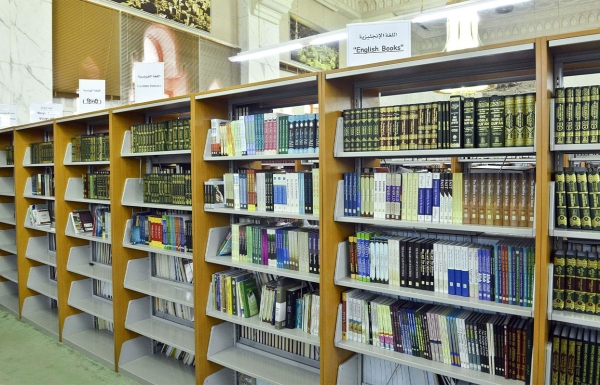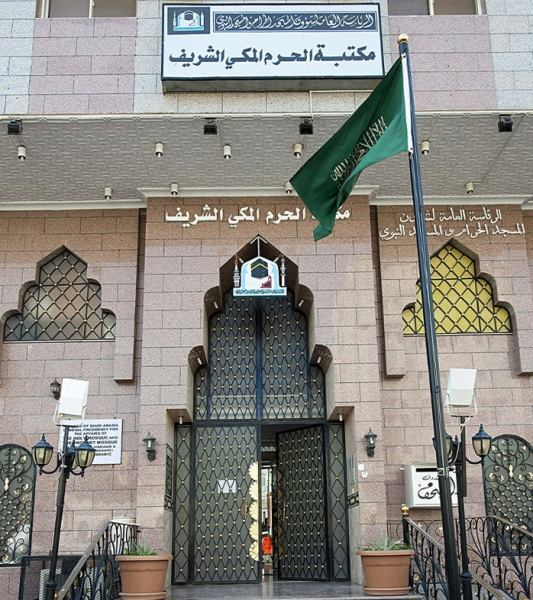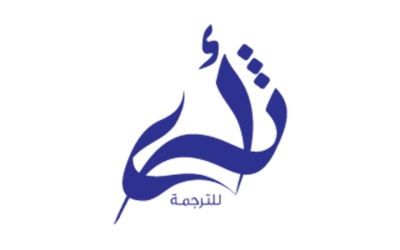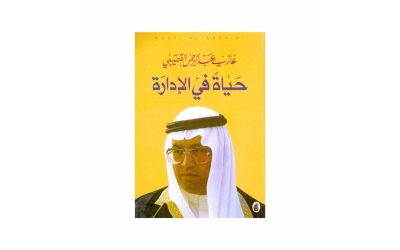


The History of Libraries in Hejaz is linked to libraries in Makkah al-Mukarramah and al-Madinah al-Munawwarah, with the oldest dating back to the early Islamic history, specifically to the seventh century. Historical references indicate that the beginning was in al-Madinah al-Munawwarah when the Holy Quran was compiled in manuscript form on parchment sheets. Multiple copies of the Holy Quran were transcribed and distributed to some Islamic capitals during the era of Caliph Uthman Bin Affan (may Allah be pleased with him).
In ancient times, the Hejaz region witnessed a cultural movement represented in the documentation of Hadith, writing on issues related to the Islamic creed, and Quran interpretations. This led to the emergence of a collection of books kept by their owners, which later formed the basis of the Islamic library. However, the majority of Hejaz libraries were plundered before Saudi rule. Some continued to operate during the Saudi era, including Arif Hikmat Library, al-Mahmudiyah Library, al-Haram al-Makki al-Sharif Library, and Abdullah Bin Abbas Library.
History of libraries in Makkah al-Mukarramah
Historical sources point to the beginnings of libraries in Makkah al-Mukarramah, including the establishment of a public library by Abdul Hakam Bin Amr al-Jumahi in the late eighth century which is considered the first of its kind in the history of Islamic civilization, as well as the emergence of a group of libraries in the following centuries. This is supported by what al-Azraqi mentioned in his book "Akhbar Makkah wa Ma Jaa Fiha min al-Athar" (Makkah News and its Antiquities) that a flood entered the Grand Grand Mosque in 1026, reaching the book repositories and destroying many of them.
Sources mention the existence of a library in the twelfth century known as al-Khizanah al-Malikiyah (Royal Cabinet), most of whose books were on Maliki Islamic jurisprudence. It is also reported that a Ribat (inn) was established in Makkah al-Mukarramah by the King of Yemen, "Nur ad-Din Bin Salah ad-Din," who endowed precious books in it. This Ribat had the most books in Makkah al-Mukarramah, and some scholars endowed many books in the same Ribat. In the thirteenth century, Prince Sharaf ad-Din Iqbal Bin Abdullah al-Sharabi al-Abbasi endowed books in various fields in his school adjacent to the Grand Mosque.
In the fourteenth century, the King of Persia, Sultan Shah Shuja, ordered the establishment of a Ribat opposite Bab al-Safa and endowed a collection of books to it. He also sent a bookcase to the Prophet's Mosque. In the fifteenth century, Sheikh Ahmad Bin Suleiman al-Tarouji endowed some books in Ribat al-Khuzi in Makkah al-Mukarramah. Sheikh Abdul Malik al-Kurdi also endowed many books in Makkah al-Mukarramah. One of the most valuable libraries of that century was the library of the historian of Makkah al-Mukarramah, Taqi al-Din al-Fasi. Additionally, the first organized public library in Makkah al-Mukarramah, endowed by King Qaytbay, was established in 1477. He made its headquarters in his school, appointed a special employee for it, and set up a register to catalog its books.
Some scholarly families in Hejaz owned large libraries, such as the Banu Fahd family in Makkah al-Mukarramah, which had a library containing rare books utilized by many scholars and researchers at the time. Its books were available for lending to everyone and were later endowed to the owner's sons and grandsons. In the sixteenth to eighteenth centuries, the establishment of libraries in Hejaz continued, especially in Makkah al-Mukarramah and al-Madinah al-Munawwarah. Al-Qutbi, one of the Arab historians, had a library that, after his death, was transferred to his nephew Sheikh Abdulkarim, totaling 14,000 books.
In the nineteenth century, Sultan Abdulmejid ordered the dispatch of a bookcase containing 3,653 books, initially placed in a dome located in the courtyard behind the Zamzam Well. However, most of its books were submerged in 1861 due to a flood that occurred at that time. In 1881, the dome located above Bab ad-Draibah was allocated for the preservation of books. The remaining books of Sultan Abdulmejid were transferred to that dome. Subsequently, books endowed by Sharif Abd al-Muttalib, the Governor of Makkah al-Mukarramah at the time, and books from Sheikh Saleh Atraiji, a former teacher at the Grand Mosque, were added.
Endowment libraries in Ribats and schools in Makkah al-Mukarramah
A group of libraries in Hejaz was endowed to Ribats and schools since the twelfth century, including "Ribat Rabee'," later known as Ribat al-Hadarmah, endowed in Ajyad Neighborhood in Makkah al-Mukarramah in 1197 by King al-Afdal Ali Bin Salah ad-Din al-Ayyubi for poor Muslim strangers. He endowed many books with it. Ribat al-Khuzi had its library formed from collections endowed to it, in addition to other ribats that had libraries such as Ribat al-Muwaffaq, Ribat al-Sharabi, Ribat al-Sidrah, Ribat al-Abarqohi, Ribat al-Safa, and Ribat Suleiman.
Some Muslim kings and rulers contributed to supplying the libraries of Makkah al-Mukarramah, specifically al-Haram al-Makki Library, with valuable manuscripts and rare books. For instance, one of the kings of Morocco sent a large copy of the Quran carried on a mule to be endowed in Makkah al-Mukarramah, along with several bookcases that opened their doors to everyone. Entry and reading were free, and many provided paper, ink, and writing tools. Most had guides to assist readers in finding the sources they were searching for.
History of libraries in al-Madinah al-Munawwarah
Throughout the ages, al-Madinah al-Munawwarah had several libraries, including al-Haram al-Madani Library, whose collections were formed from endowments by kings, rulers, scholars, and the wealthy. History records that in 1184, there were two large bookcases in the Prophet's Mosque containing endowed books and Qurans. One of the sultans of Persia endowed a bookcase in the Prophet's Mosque when he visited al-Madinah al-Munawwarah.
The Library of al-Madrasah al-Shihabiyah received attention from resident and visiting scholars to al-Madinah al-Munawwarah, who endowed valuable collections of books to it, including Abu Ishaq and Muhyi ad-Din al-Hourani from the fourteenth century, both of whom endowed all their books to this school. Interest in libraries in Hejaz continued until the Ottoman rule. By the end of the Ottoman era, the libraries of al-Madinah al-Munawwarah numbered eighty-eight, including school libraries, private libraries, and ribat libraries.
Private libraries, such as Sheikh Abdul Hayy Bin Abdulrahman Abi Khudair Library.
School libraries, such as the Library of al-Madrasah al-Ihsaniyah, founded by Mustafa Bin Muhammad in 1858 in Bab al-Jum'ah in al-Aghawat Neighborhood, housing 461 books. Similarly, the Library of Madrasat al-Saqizli, established in 1713 by Ahmad Bin Sayyid Ibrahim, known as al-Saqzili, contained 593 books, many of which were endowed by individuals. Another notable example is the Library of Madrasa al-Shifa', founded in 1700 by Fayd Allah Affandi, an Ottoman scholar, which contained a collection of 1,441 books, including manuscripts and printed works.
Sultan Qaytbay established the Library of Madrasat Qaytbay, with the number of books in its bookcase reaching 4,569. He employed a worker for it and organized a register for its books. Mustafa Agha Killi Nazari founded the Library of Madrasat Killi Nazari in 1838, with 157 books.
Ribat libraries, including the Library of Ribat al-Jabart, housed 103 books, including twenty-five manuscripts, many of which were endowments by individuals. The Library of Ribat Uthman Bin Affan was notable for its collection of manuscript books on Maliki jurisprudence and its unique practice of allowing external lending in exchange for a delivery bond held until the book's return. Additionally, the Library of Ribat Qura' Bash was founded by Sheikh Abdulrahman Affandi in 1621.
King Abdulaziz Complex for Endowment Libraries is a government entity established under a Council of Ministers resolution in 2016. The complex is supervised by a Board of Trustees chaired by the Governor of al-Madinah al-Munawwarah Province and is organizationally linked to the Prime Minister. It aims to preserve endowment libraries, serve them, and make them accessible by caring for the rare collections in the complex, preserving them, displaying them in museums, disseminating knowledge and awareness about manuscripts, and developing a scientific and practical methodology for preserving endowment libraries with rare contents. It also seeks to build advanced electronic databases of the complex's contents, introduce the written Arab and Islamic civilizational heritage, highlight and publish it, hold exhibitions, conferences, and seminars on endowment libraries and organize them, as well as cooperate and exchange information and publications with national and international libraries and organizations.
Fate of libraries in al-Madinah al-Munawwarah
Throughout historical periods, al-Madinah al-Munawwarah experienced many events that led to the loss of its libraries and valuable manuscripts. Many of its books were transferred to major cities worldwide through book traders who moved many manuscripts to Asia and Europe, where they were sold. Some of these are now found in the Leiden Library in the Dutch city of Leiden, the Berlin State Library, and the Princeton University Library in the United States.
Ahmad Abd al-Ghafour Attar, in his book "Qatra min Yara'," A Drop from a Pen, discussed the condition of libraries in Hejaz and pointed out the existence of other libraries not previously mentioned. He noted that al-Madinah al-Munawwarah alone had fifty-three libraries, both public and private. Most of them vanished over time, and their contents were lost. What remained was incorporated into the Ministry of Hajj and Endowments (currently the Ministry of Hajj and Umrah).
Related quizzes
Related articles

